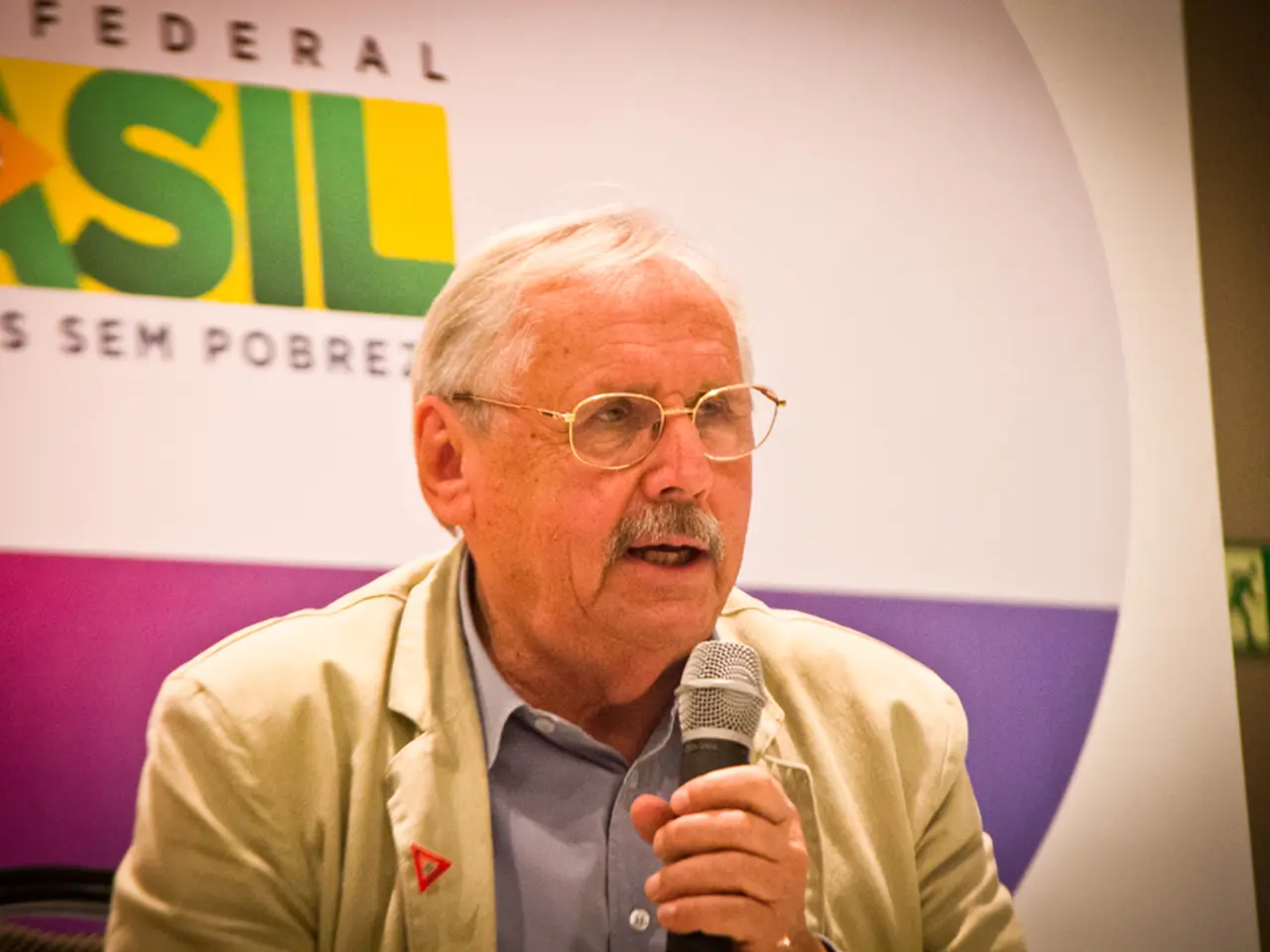"Congress expresses disapproval over Prime Minister Modi lauding RSS in his Independence Day address, which some perceive as an attempt to hinder retirement plans"
Article: The Rashtriya Swayamsevak Sangh and India's Independence Movement
In a controversial turn of events, the Congress party has expressed deep concern over Prime Minister Narendra Modi's praise for the Rashtriya Swayamsevak Sangh (RSS) in his Independence Day 2025 speech. Critics, including Congress MP Manickam Tagore and leader Jairam Ramesh, have described the speech as "stale, hypocritical, insipid," and "troubling."
The RSS, founded in 1925 by K.B. Hedgewar, did not play a direct or active role in India's independence movement against British colonial rule. Instead, during the colonial period, the RSS kept itself largely aloof from political struggles for independence, focusing primarily on cultural nationalism centered on Hindu identity rather than mass anti-colonial protests.
Hedgewar himself had participated in some protests before founding the RSS, but afterward, the organization maintained a policy of refraining from political agitation. This policy was evident in the RSS's decision not to endorse key symbols of the independence movement such as the tricolor flag and avoiding celebrating pre-independence "Independence Day" declarations after initially marking them in 1930.
During crucial movements like the Civil Disobedience and Quit India Movements, RSS leadership advised members to stay away. British records described the RSS as a "non-threat" compared to groups like the Congress and the Indian National Army.
Post-independence criticism includes the RSS initially rejecting the national flag and advocating for a Hindu cultural agenda that some saw as opposing the secular nationalist ethos of the independence movement.
The most troubling element of the PM's speech, according to Ramesh, was his name-checking of the RSS from the ramparts of the Red Fort. Ramesh accused Modi of attempting to appease the RSS in the run-up to his 75th birthday next month, politicizing Independence Day for personal and organizational gain, which he deemed as deeply corrosive to our democratic ethos.
Tagore claimed that the RSS's legacy is not one of fighting colonialism but of spreading hate and division among fellow Indians. The controversy has sparked a debate about the RSS's role in India's independence movement and its influence on the country's political landscape today.
[1] - Sardar Patel noted that the RSS "did not participate in the struggle for independence in any substantial way." [2] - The RSS stayed away from the Civil Disobedience Movement, Quit India Movement, and other mass protests against British rule. [3] - Ramesh stated that the RSS did not play a direct role in India's Independence struggle. [4] - Tagore alleged that the RSS did not play a direct role in India's Independence struggle and its legacy is not one of fighting colonialism but of spreading hate and division among fellow Indians.
Read also:
- Weekly happenings in the German Federal Parliament (Bundestag)
- Southwest region's most popular posts, accompanied by an inquiry:
- Discussion between Putin and Trump in Alaska could potentially overshadow Ukraine's concerns
- Tinubu's administration allegedly causing issues within every political party as Peter Obi's name surfaces - Obidient Movement asserts








